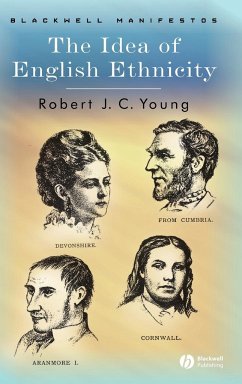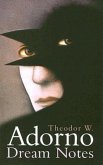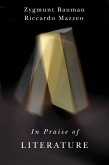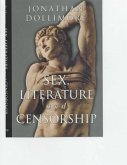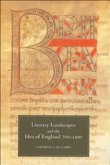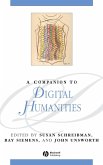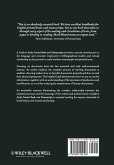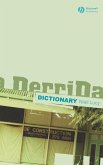In recent years, particularly since devolution in the UK, there have been many attempts to identify what exactly Englishness really involves. In this major contribution to debates about English identity, leading cultural theorist Robert J. C. Young argues that the recent uncertainty about the nature of the English arises from more than just the challenges of devolution, or even the end of empire. It is rather the long-term result of the fact that in the nineteenth and early twentieth centuries, Englishness was never really about England, the place, its essence, or its national character, at all. It was rather developed as a form of ethnic identity for those who were precisely not English, but rather made up the English diaspora around the world, Americans, Canadians, Australians, New Zealanders, South Africans. Englishness was constructed as a translatable quality or identity that could be taken on or appropriated by anyone anywhere - which is why the most English Englishmen have rarely been English. This construction was so powerful that even today the English diaspora continues to act together at a political level around the globe. In England itself, this meant that being English was characterized through an open structure of inclusion rather than exclusion, which helps to explain why the country has been able to transform itself into one of the most successful of modern multicultural nations.
"Nonetheless, The Idea of English Ethnicity remains an eloquent andpowerfully-argued analysis of Victorian ideas of Englishness andrace. Perhaps the book's greatest achievement is the extent towhich it succeeds, despite the uncertainties and ambiguitiessurrounding its central thesis, in convincing the reader that theVictorians did indeed lay the foundations for a 'continuingtradition of flexibility and comprehension' that contributed to thesubsequent development of 'a tolerant multiracial society'(239)." (Oxford Journal, 1 March 2011)
"In The Idea of English Ethnicity Young is about his bestlargely because it is focused and his conclusions are uncluttered."(Multiculturalism, October 2010)"For the Brontë reader,the topic of ethnicity remains an intriguing one. [With] Young'ssuggestion that Englishness is not about race but is a translatablequality, we can identify the sisters as English. ... Young'sbook gives us another opportunity to consider how English theBrontë sisters really were." (Brontë Studies,November 2009)
"A well-written, superbly readable and ... well structuredpresentation of the concepts of English ethnicity in the 19thCentury. ... A worthwhile starting point." [Translated from German](Humanities - Sozial- Und Kulturgeschichte, May 2009)
"Robert J. C. Young's The Idea of English Ethnicity hasnever been more needed. In this compelling, impeccably researched,and eminently readable study, Young demonstrates that the singularand pure concept of English identity whose loss is now so widelyreported never really existed in the first place. I cannot rememberthe last time that I read such a highly original book on what mightseem like a relatively well-trammeled topic. Victorian Englishnessand racial ideology have been the subject of innumerable studiesover the past decades, but none that I can think of have thefreshness, innovation, and authority of this book. The Idea ofEnglish Ethnicity can and should change the way we think aboutEnglishness and Empire alike. Young's prose is as lucid andcoherent as his arguments are innovative. Writing in a manner thatis unfortunately all too rare in the academy these days, heannounces his thesis early and signposts it frequently, deftlylinking the new material to the larger systems of ideas on whichthe book is premised. The result is a highly intelligent book on animportant subject that can be enjoyed by readers both inside andoutside of the academy." (Journal of British Studies,October 2008)
"From the vantage point of cultural studies, Young offers hisinterpretation of 'English ethnicity.' Young argues that a shiftoccurred from viewing English people as pure Saxons to Anglo-Saxonsof 'mixed' blood, a definition that encompassed English speakers inthe colonies and former colonies as well immigrants to England.Recommended." (Choice Reviews, December 2008)
"A contribution to the literature of the continuing Englishidentity crisis." (Times Literary Supplement, October2008)
"A major contribution to debates about English identity ...shows how potent the idea of Englishness is."(SirReadALot.org)"Robert Young has written a compelling and thorough textual historyof English ethnicity and its discursive relation to the history ofracial theory. Comprehensive, carefully considered, and clearlywritten, this book sets the standard against which any future studyof Englishness will be assessed. The bar has been lifted a coupleof notches higher."
-David Theo Goldberg, University of California
"What is Englishness?, Robert J.C. Young asks, and inThe Idea of English Ethnicity he offers an impressivelywell-researched and eminently readable answer."
-Werner Sollors, Harvard University
"In The Idea of English Ethnicity Young is about his bestlargely because it is focused and his conclusions are uncluttered."(Multiculturalism, October 2010)"For the Brontë reader,the topic of ethnicity remains an intriguing one. [With] Young'ssuggestion that Englishness is not about race but is a translatablequality, we can identify the sisters as English. ... Young'sbook gives us another opportunity to consider how English theBrontë sisters really were." (Brontë Studies,November 2009)
"A well-written, superbly readable and ... well structuredpresentation of the concepts of English ethnicity in the 19thCentury. ... A worthwhile starting point." [Translated from German](Humanities - Sozial- Und Kulturgeschichte, May 2009)
"Robert J. C. Young's The Idea of English Ethnicity hasnever been more needed. In this compelling, impeccably researched,and eminently readable study, Young demonstrates that the singularand pure concept of English identity whose loss is now so widelyreported never really existed in the first place. I cannot rememberthe last time that I read such a highly original book on what mightseem like a relatively well-trammeled topic. Victorian Englishnessand racial ideology have been the subject of innumerable studiesover the past decades, but none that I can think of have thefreshness, innovation, and authority of this book. The Idea ofEnglish Ethnicity can and should change the way we think aboutEnglishness and Empire alike. Young's prose is as lucid andcoherent as his arguments are innovative. Writing in a manner thatis unfortunately all too rare in the academy these days, heannounces his thesis early and signposts it frequently, deftlylinking the new material to the larger systems of ideas on whichthe book is premised. The result is a highly intelligent book on animportant subject that can be enjoyed by readers both inside andoutside of the academy." (Journal of British Studies,October 2008)
"From the vantage point of cultural studies, Young offers hisinterpretation of 'English ethnicity.' Young argues that a shiftoccurred from viewing English people as pure Saxons to Anglo-Saxonsof 'mixed' blood, a definition that encompassed English speakers inthe colonies and former colonies as well immigrants to England.Recommended." (Choice Reviews, December 2008)
"A contribution to the literature of the continuing Englishidentity crisis." (Times Literary Supplement, October2008)
"A major contribution to debates about English identity ...shows how potent the idea of Englishness is."(SirReadALot.org)"Robert Young has written a compelling and thorough textual historyof English ethnicity and its discursive relation to the history ofracial theory. Comprehensive, carefully considered, and clearlywritten, this book sets the standard against which any future studyof Englishness will be assessed. The bar has been lifted a coupleof notches higher."
-David Theo Goldberg, University of California
"What is Englishness?, Robert J.C. Young asks, and inThe Idea of English Ethnicity he offers an impressivelywell-researched and eminently readable answer."
-Werner Sollors, Harvard University

